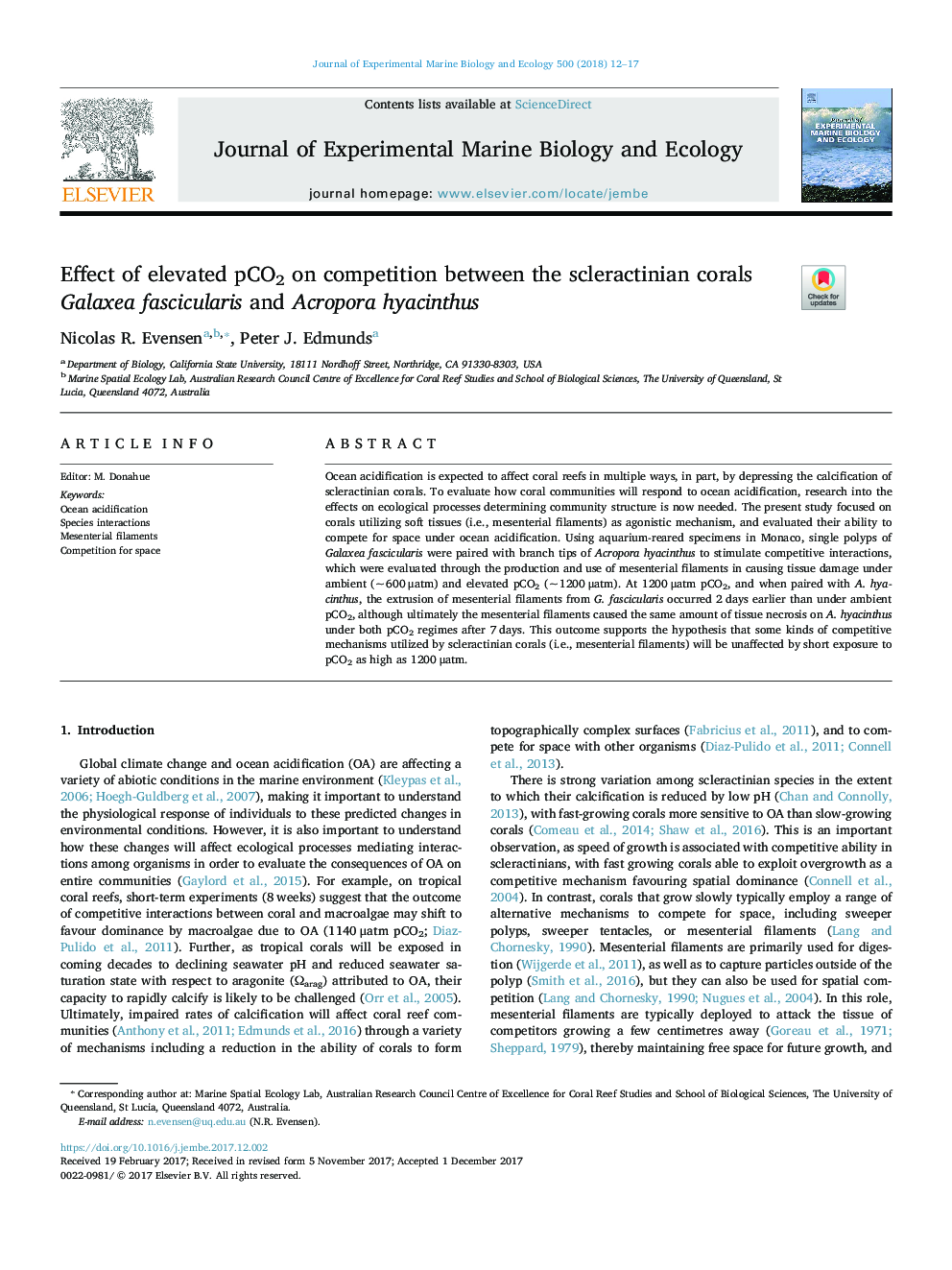| Article ID | Journal | Published Year | Pages | File Type |
|---|---|---|---|---|
| 8848993 | Journal of Experimental Marine Biology and Ecology | 2018 | 6 Pages |
Abstract
Ocean acidification is expected to affect coral reefs in multiple ways, in part, by depressing the calcification of scleractinian corals. To evaluate how coral communities will respond to ocean acidification, research into the effects on ecological processes determining community structure is now needed. The present study focused on corals utilizing soft tissues (i.e., mesenterial filaments) as agonistic mechanism, and evaluated their ability to compete for space under ocean acidification. Using aquarium-reared specimens in Monaco, single polyps of Galaxea fascicularis were paired with branch tips of Acropora hyacinthus to stimulate competitive interactions, which were evaluated through the production and use of mesenterial filaments in causing tissue damage under ambient (~ 600 μatm) and elevated pCO2 (~ 1200 μatm). At 1200 μatm pCO2, and when paired with A. hyacinthus, the extrusion of mesenterial filaments from G. fascicularis occurred 2 days earlier than under ambient pCO2, although ultimately the mesenterial filaments caused the same amount of tissue necrosis on A. hyacinthus under both pCO2 regimes after 7 days. This outcome supports the hypothesis that some kinds of competitive mechanisms utilized by scleractinian corals (i.e., mesenterial filaments) will be unaffected by short exposure to pCO2 as high as 1200 μatm.
Related Topics
Life Sciences
Agricultural and Biological Sciences
Aquatic Science
Authors
Nicolas R. Evensen, Peter J. Edmunds,
